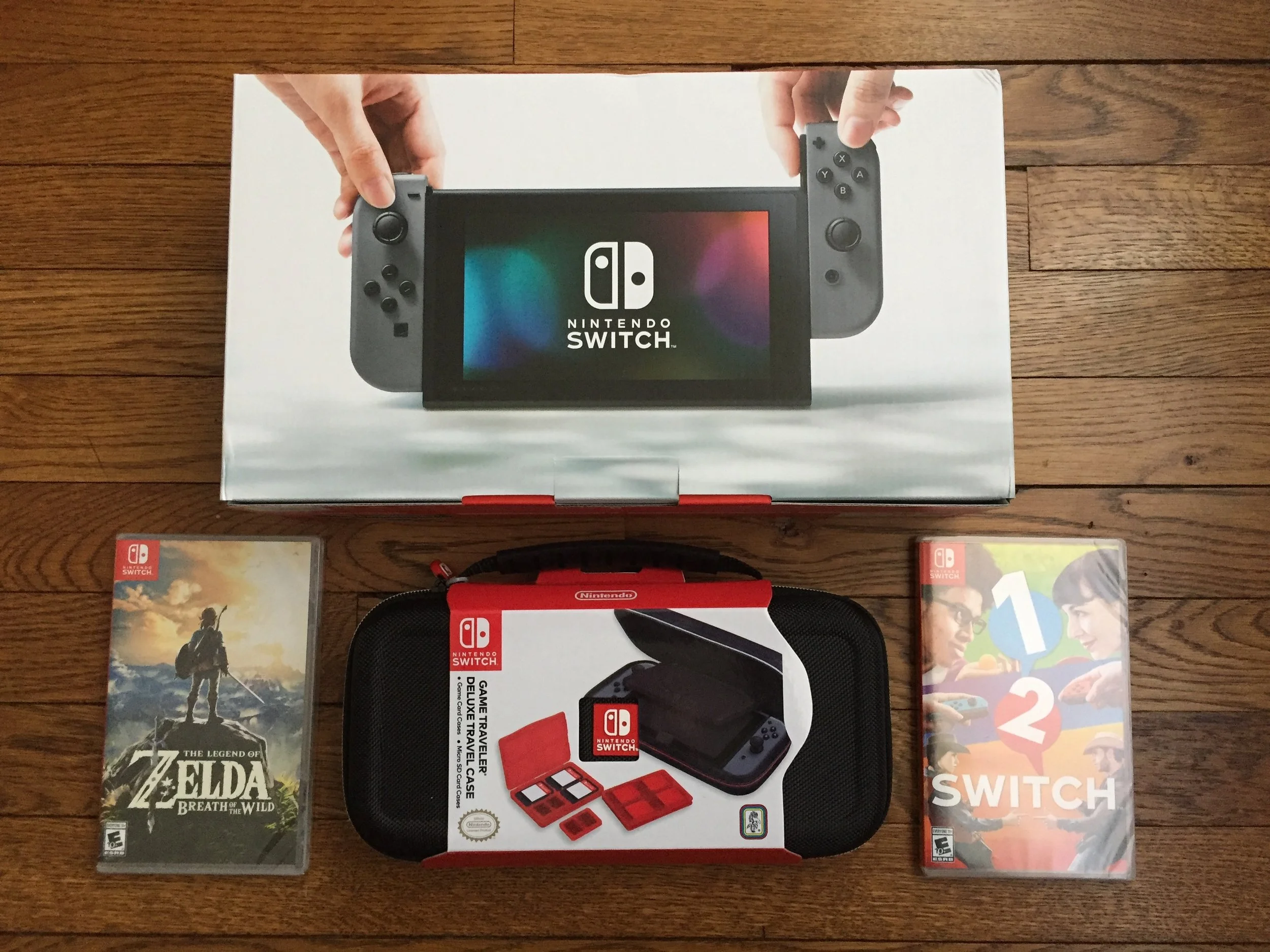Luigi on his "Dual Screen" or "DS" device, getting a call from Professor E. Gadd in Luigi's Mansion: Dark Moon.
Okay, I’ll admit it: I’m a slow gamer. I regularly have four or five games that I’m “actively” playing, and the result is I’m never getting through any of them as quickly as, perhaps, other players. Case in point: Luigi’s Mansion: Dark Moon was released on March 24, 2013, for the Nintendo 3DS. I finished it last night, March 13, 2015 (and, to be clear, I got it within a few days of release). That’s just shy of two years to complete a handheld game that isn’t an epic, 100-hour RPG. In fact, I spent under 20 total hours playing it.
Am I doing it wrong?
To answer that, we’ll have to look at a number of different arguments both for and against playing games slowly, spread out over time.
THE “I’LL FORGET” ARGUMENT
Whenever I have conversations about slowly playing many games at the same time, one of the first reactions I get is, “I can’t stop playing a game and then try to come back to it because I can’t remember any of the controls.” Similarly common: “I won’t remember what’s going on in the story.”
These are totally valid reasons to play games a little more concisely, but I’ve never found either of them to be too relatable.
Lots of games do have weird and increasingly-complex controls, but I find that most of the functions either follow some industry standards (movement, shooting, jumping) and then the rest of the stuff is easy to reference via the Pause screen in most games. Moreover, I tend to find that the physical act of playing most games is akin to riding a bicycle: once you’ve learned, you’re not that likely to forget (even if you do a get a tad rusty).
Metroid: Other M helpfully catches you up on the latest story details whenever you boot up a saved game.
Last year's Shadow of Mordor shows just how complex some control schemes can actually be!
Story can be another matter, especially depending on your memory or personality. While there are a few games that do a good job of giving you a refresher course automatically when you load a saved game (weirdly, the oft-maligned Metroid: Other M for Wii did a nice job of this), there are even more that give you an easy option to view some kind of journal or event log that can help jog your memory of what was happening when you last left these characters. And, then, of course, there are other games that simply don’t have too much story to begin with, so it’s not a major issue to forget a few details.
Much like watching a TV show over the course of multiple years, lengthy games can be enjoyed even when significant amounts of time pass between gameplay sessions.
THE “OBSESSED” ARGUMENT
While I just mentioned viewing TV shows over the course of many years, the reality is that more and more viewers are finding new ways to “binge” watch shows, one episode after another, in a far shorter period of time. The advent of streaming services like Netflix popularized this, and now they’re even launching new shows like this. This past week, for example, the Netflix-exclusive comedy The Unbreakable Kimmy Smith dropped with all 13 episodes of season one available immediately (as an aside, it’s quite funny).
But gamers were binging on entertainment long before full-season DVD sets or on-demand streaming were things. The notion of pulling an all-nighter with a game you just can’t put down is a firmly cemented part of gaming culture (I even remember doing this with Metal Gear Solid 2: Sons of Liberty back in college).
But is it really an ideal way to enjoy a game? I would argue not.
As a kid, I can remember attending sleepovers with endless Mortal Kombat II or Goldeneye matches, and that sort of game might lend itself decently to truly binging. But, for more thoughtful games, blowing through the experience as quickly as possible, especially in the bleary-eyed, wee hours of the night, robs the player of much of the narrative’s nuance. The more time you have between sessions of gameplay, the more likely you are to process the story, reassess your strategy, discuss the game with friends, or even just miss the game a little bit.
So many hours of my youth spent with the SNES version of Mortal Kombat II. Toasty!
Jimmy Fallon living out the ultimate Goldeneye 007 deathmatch scenario with Pierce Brosnan himself on The Tonight Show.
There’s a lot to be said, in fact, for the power of anticipation. In a society that’s increasingly obsessed with instant gratification, it’s easy to forget how important it is to get some space from the media we all love so much. There’s a lot of nostalgia wrapped up with gaming, especially for the adult crowd. A major part of our early experiences with gaming actually had nothing to do with any kind of technological equipment: in the hours spent at school, we often could only think about or talk about our favorite games, counting the hours until the bus delivered us home to our patiently-waiting consoles.
Bottom line? I think it’s okay to slow down and smell the virtual roses once in a while.
Now let’s examine some of the arguments for playing games slowly.
THE UNRELENTING RELEASE SCHEDULE ARGUMENT
The games industry has its peaks and valleys, but it never really stops. Publishers and developers release new games every week, and there are always many more in development. In the earlier days of gaming, you might have had a shot at playing most every game in a particular genre, but there’s simply not enough time for any one person to keep up with even a fraction of the games released in today’s marketplace.
Even so, as a big gaming fan, I want to experience as many games as possible—no easy task as the pressures of adulthood seek to consume more and more of that most precious of commodities: time.
By playing games in short fits and starts, you can actually try a lot more of them. The ones that really pass muster will hook you and stand the test of the time, the ones that don’t will collect dust (or can be sold on the secondhand market).
With services like PlayStation Plus, the games just won't stop coming. It's hard to keep up!
This “sampler” mentality is even more useful with the rise of services like PlayStation Plus and Xbox Live Games with Gold, which offer new games every month as part of their yearly subscription fees. While they’re not all new, they’re good more often than not, if not occasionally great. You might not be able to complete each one of them, but you can certainly broaden your horizons and stay more up-to-date on the industry.
THE BARGAIN HUNTER ARGUMENT
Setting aside time constraints for a moment, no one has truly unlimited cash, so there’s always going to be a budgetary limit on the numbers you can play each year. Depending on whether you buy your games right at release or not can be a big factor in which factor will be the more likely limiter of your gaming habits.
As I’ve grown in my career, I’ve been lucky enough to be a bit more likely to run out of time than funds for gaming, but I can still only set so much cash aside for my hobby. And with digital games storefronts like Steam or PlayStation Network offering routine sales with deep discounts, it’s easy for gamers to accumulate large libraries of games.
If you’re someone who only buys new releases and plays them to completion before starting any other games, you might be missing out on the discounts available with just a little patience. Even better, by playing games over longer periods of time, I’m almost always a little behind the curve on completing games (read: the beginning of this post), but I’m also almost never without a backlog of games to play.
So, to my original question: am I doing it wrong? Are you doing it wrong if you just spent a few consecutive weeks steeped only in Dragon Age: Inquisition?
I think each person needs to enjoy games their own way. This is, after all, entertainment.
But I’d be incredibly interested to hear your thoughts on the matter! Leave a comment with how you play games: slowly, quickly, upside down, etc.
















